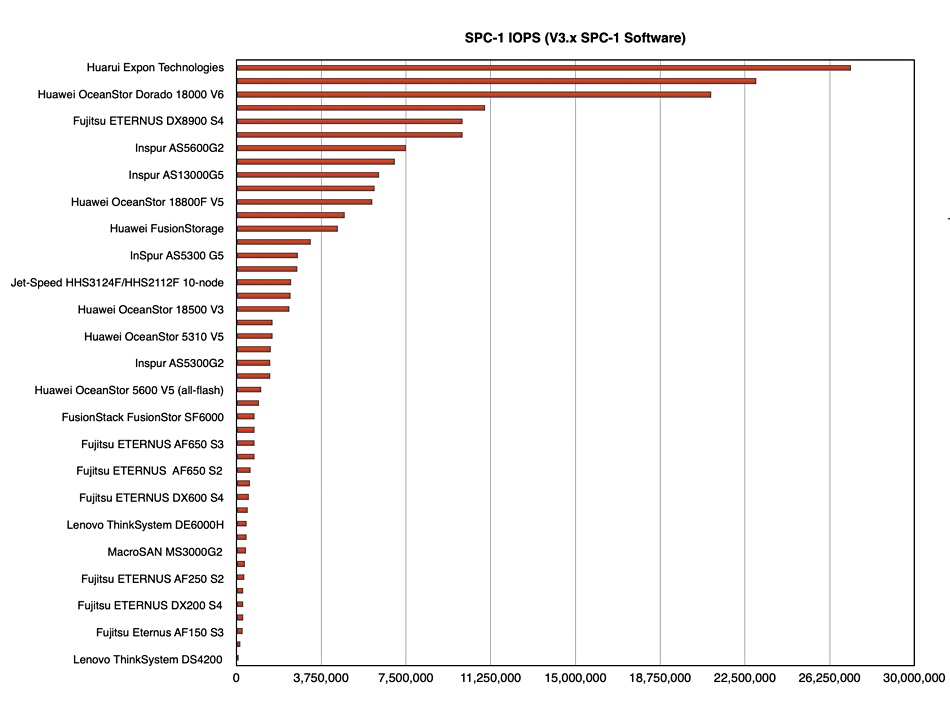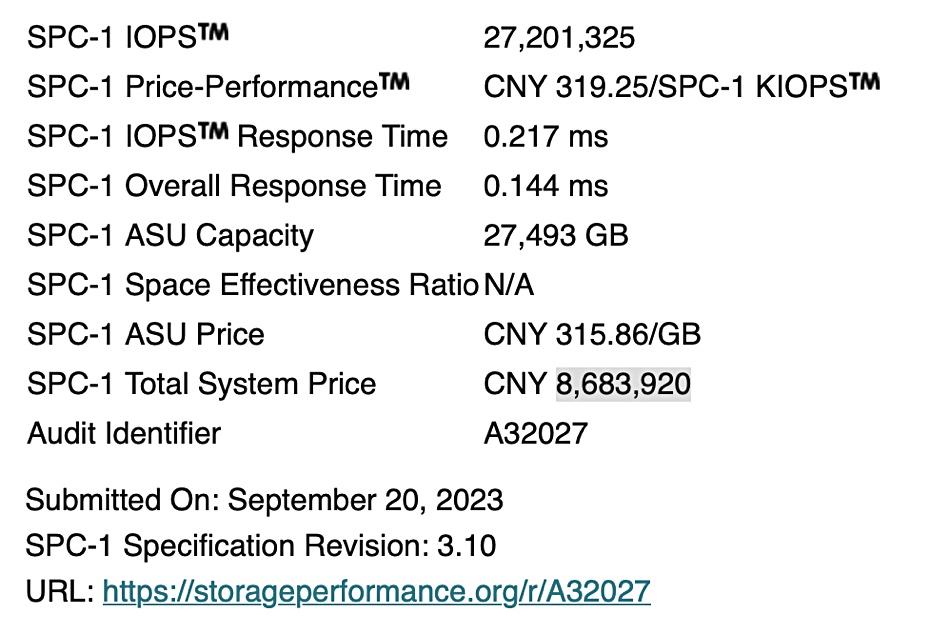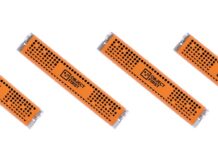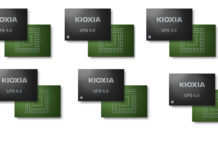Cloud storage provider Backblaze has released Computer Backup 9.0 in early access, which it says eliminates stress over restoring data. The version removes the 500GB size limit on its restoring capabilities and comes with a dedicated restore app for macOS and Windows clients. Computer Backup offers free egress and is set at a fixed cost based on employee count with no limit to the amount of computers per organization.
…
New research commissioned by data management warehouse ClickHouse shows it’s speedier than Snowflake and more cost-effective when it comes to measuring real-time analytics. ClickHouse claims it improves data loading and query performance by up to 2x and compression by 38 percent even with Snowflake optimizations. ClickHouse reckons it can achieve these moves with a 15x reduction in cost. See ClickHouse’s blog (part one and part two).
…
Data protector CrashPlan has launched CrashPlan for MSPs, a dedicated program for IT Managed Service Providers and Managed Security Service Providers. They can now provide their customers with CrashPlan’s endpoint backup and recovery SaaS offering. CrashPlan for MSPs’ cloud-based SaaS deployment requires zero on-premises hardware and comes with out-of-the-box system defaults to get customers up and running. Direct billing to the MSP on a monthly, per-user basis gives the option to add or remove customers without having to commit to a cap, and perform customer chargebacks based on consumption.
…
Salesforce and Databricks have expanded a strategic partnership that delivers zero-ETL (Extract, Transform, Load) data sharing in Salesforce Data Cloud and lets customers bring their own Databricks AI models into the Salesforce platform.
…

China’s Huarui Expon Technologies, the SPC’s newest member, published its first SPC-1 result and set a new performance record. A cluster of 32 ExponTech WDS V3 all-flash nodes demonstrated 27,201,325 SPC-1 IOPS with an SPC-1 IOPS Response Time of 0.217ms. ExponTech WDS V3 is a fully self-developed software-defined, high-performance distributed enterprise-level block storage platform designed for large-scale core data processing applications. ExponTech WDS V3 adopts a decentralized distributed system architecture, which it says enables smooth horizontal expansion while maintaining linear scalability of performance and capacity with the number of nodes. The platform supports NVMe SSD, SATA SSD, and SCM drives as primary storage media and is compatible with both 25G/100G RDMA RoCEv2 and traditional 10G TCP/IP networking technologies.

…
ibi, which supplies scalable data and analytics software, has announced Open Data Hub for Mainframe, directly bringing mainframe data into web-based business analytics capabilities. Business users can integrate and manipulate disparate data in real time and import rich information into preferred analytics tools. They can avoid the costs of large ETL projects and eliminate stale data by accessing the data in-place on the mainframe. Data scientists gain access to previously inaccessible mainframe data, enabling them to create custom queries without SQL and work with deeper, more complex datasets in real time for comprehensive analytics. Developers benefit from an intuitive GUI interface to generate data queries without creating custom SQL queries while providing seamless access to multiple databases, boosting productivity and software quality.
…
IBM has announced a Cyber Recovery Guarantee for its FlashSystem storage products. It guarantees to recover a user’s immutable snapshot data in 60 seconds or less, enabling businesses to persist through a ransomware attack protected by IBM FlashSystem with Safeguarded Copy. If Safeguarded Copy takes longer than 60 seconds or is unrecoverable, IBM Expert Lab will try to help the client get back on their feet. Find out more here.
…
Kioxia America has donated a command set specification to the Linux Foundation vendor-neutral Software-Enabled Flash Project. Software-Enabled Flash technology gives storage developers control over their data placement, latency outcomes, and workload isolation requirements. Through its open API and SDKs, hyperscale environments may optimize their own flash protocols, such as flexible direct placement (FDP) or zoned namespace (ZNS), while accelerating adoption of new flash technologies. Kioxia has developed working samples of hardware modules for hyperscalers, storage developers and application developers. The Linux Foundation’s Software-Enabled Flash Project offers several levels of membership and participation.
…
Lightbits Labs has announced Lightbits v3.4.1 with a transition to full userspace operation, completely eliminating Linux kernel dependencies for the first time. It has ported Lightbits kernel code to userspace and optimized it. This release extends compatibility to new distributions, including RHEL 9.2, Alma Linux 9.2, and Rocky Linux 9.2, and we’re told makes upgrades simpler and faster. The release adds various observability improvements to Lightbits and to its monitoring stack. Lightbits has now made its debut on the Azure marketplace and is offering an early preview of its new Azure Managed App Marketplace offering. To use it, click “subscribe” on the marketplace.
…
Pacific Northwest National Laboratory is collaborating with Microsoft and Micron to make computational chemistry broadly available to applied researchers and industrial users. The project, known as TEC4 (Transferring Exascale Computational Chemistry to Cloud Computing Environment and Emerging Hardware Technologies), is part of a broad effort announced by the Department of Energy to quicken the transfer of technology from fundamental research to innovation that can be scaled into products and capabilities. Instead of using a centralized supercomputer, the team will use Microsoft’s Azure Quantum Elements, which features simulation workflows augmented by artificial intelligence, and incorporate Micron’s CXL memory expansion modules.
…
The Presto Foundation has announced two new contributions to Presto, the open source SQL query engine for data analytics and data lakehouse. IBM is donating its AWS Lake Formation integration for Presto, and Uber is donating its Redis-based historical statistics provider. AWS Lake Formation is a service intended to make it easy to set up a secure data lake in a matter of days, providing the governance layer for AWS S3. With the AWS Lake Formation and Presto integration, data platform teams will be able to integrate Presto natively with AWS Glue, AWS Lake Formation, and AWS S3 while providing granular security for data.
…
Storage supplier Scality has achieved a Silver rating from EcoVadis, the world’s largest provider of business sustainability ratings. EcoVadis has become the global standard by rating more than 100,000 companies globally. Scality’s score jumped into the top 25 percent of all organizations ranked by EcoVadis for sustainability improvements, and was based on benchmarks that evaluate participating organizations on 21 sustainability criteria metrics across four core pillars: Environment, Labor and Human Rights, Ethics, and Sustainable Procurement.
…
SoftIron has been authorized by the Common Vulnerability and Exposures (CVE) Program as a CVE Numbering Authority. The CVE Program seeks to provide a common framework to identify, define, and catalog publicly disclosed vulnerabilities. As each vulnerability is detected, reported, and assessed, a CVE ID is assigned and a CVE Record is created. This ensures information technology and cybersecurity professionals can identify and coordinate efforts to prioritize and address vulnerabilities and protect systems against attack.
…
Starburst, which supplies data lake analytics software, has announced new capabilities for its data lake analytics platform including Dell storage support for ECS, ObjectScale, and Ceph in Starburst Enterprise. On-premises connectivity in Starburst Galaxy extends beyond the “cloud data source only” world and allows enterprises moving to the cloud to still access their on-prem datasets. There is integration of Starburst Galaxy and Databricks Unity Catalog to provide an additional metastore alongside AWS Glue, Hive HMS, and Galaxy Metastore so customers have access to and can blend modern data sources without migration or reconfiguration. The on-prem connectivity is probably the most significant addition here as it’s highly differentiated from other solutions on the market that are more cloud-centric. The idea is to give options to those at early stages of migration or those who must keep data on-prem for regulatory/data localization reasons so they can still use that data.
…
Synology has attained Veeam Ready – Repository certification for its enterprise-oriented storage units. These units also support Active Backup for Business.
…
Reuters reports that a $14 billion tender offer from private equity firm Japan Industrial Partners (JIP) for Toshiba has ended in success and will enable the troubled conglomerate to go private. The JIP-led consortium saw 78.65 percent of Toshiba shares tendered, giving the group a majority of more than two-thirds which would be enough to squeeze out remaining shareholders. Toshiba owns about 40 percent of SSD manufacturer Kioxia, which is involved in merger talks with its NAND foundry joint venture partner Western Digital.

…
VAST Data has appointed its first CMO, Marianne Budnik, who will lead all marketing functions including product marketing, field marketing, customer advocacy, communications and public relations, content, creative and brand strategy. She will work closely with VAST Data co-founder Jeff Denworth, who will maintain his responsibilities leading the company’s product and commercial strategies. Budnik comes to VAST from marketing exec roles at CrowdStrike, CyberArk, and CA Technologies, along with nearly a decade in marketing leadership roles at EMC Corporation. VAST has also appointed Stacey Cast as VP of global operations, responsible for VAST’s operational processes that cover product quality and delivery. She comes to VAST from being SVP of Business Operations at H20.ai, and previously held similar roles at SentinalOne, Cohesity, Nimble Storage, and NetApp.
…
Veeam commissioned Censuswide to conduct a survey of UK business leaders to understand how the rising threat of cyber-attacks is affecting their companies. Some 43 percent indicate that ransomware is a bigger concern than all other critical macroeconomic and business challenges, including the economic crisis, skills shortages, political uncertainty, and Brexit. Of the 100 directors of UK companies surveyed, a fifth considered dissolving their business in the year after an attack and 77 percent reduced staff numbers. While turnover, customer retention, and productivity were also hit, these aren’t the only negative consequences as the survey also uncovered widespread psychological effects on respondents related to ransomware attacks.
…
Weka Data Platform’s Converged Mode is the first scale-out storage on deep learning instances available to users running workloads in the cloud. It uses ephemeral local storage and memory in cloud AI instances to yield exponential cost savings and performance improvements for large-scale generative AI resources compared to traditional data architectures. It’s done this in collaboration with its customer Stability AI, an open source generative AI company, and it is intended to enhance Stability AI’s ability to train multiple AI models in the cloud, including its popular Stable Diffusion model, and extend efficiency, cost, and sustainability benefits to its customers.
…
Zadara was placed in the “leader” position in GigaOm’s Storage-as-a-Service (STaaS) Sonar Report, beating competitors including HPE, NetApp, IBM, Pure Storage, and others. It achieved a rating of “exceptional” in categories relating to cost, expansion, ease of use, data plane and protocol support, and multi-tenancy. For more information, see the full report.








